The women who are making their countries wealthier
Around the world, women are often locked out of the economy – from better paid jobs to accessing finance. But when women get the chance to work, it makes their communities and countries wealthier. Meet those leading the way for women's economic empowerment.
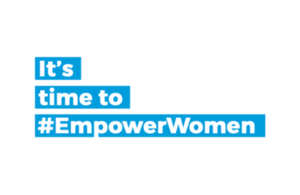
It's time to empower women
Rumbudzai, Zimbabwe
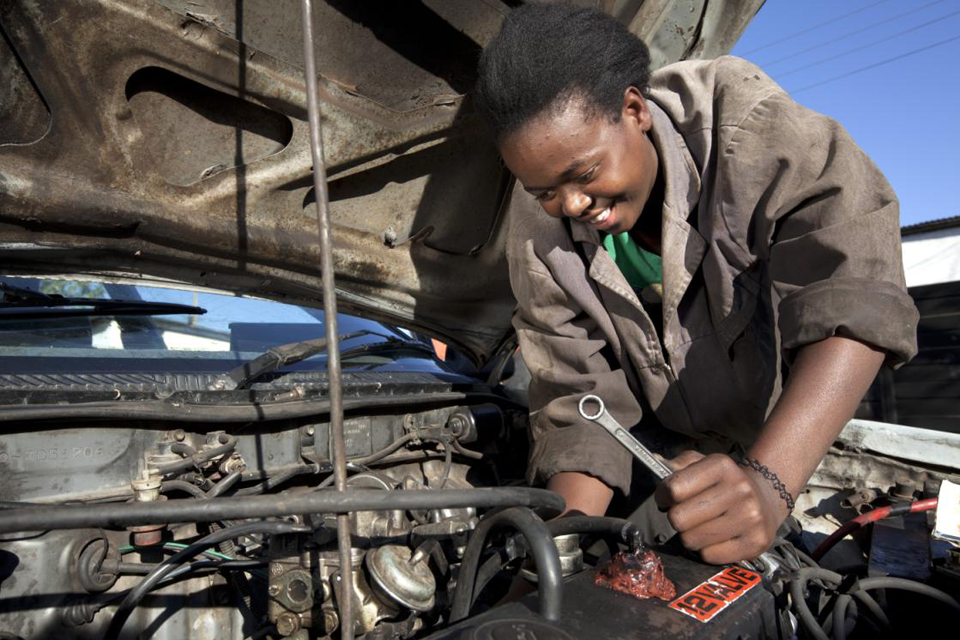
Photograph of a mechanic in Zimbabwe
Rumbudzai always dreamt of being a mechanic – and with the help of UK aid and its partners, she’s now trained and got a job at her local garage in Gweru.
She got that chance after joining a youth training scheme run by CARE International and Palladium. 15 people were selected as trainee mechanics - 6 of them were women.
I used to see mechanics and wished I could be one. They always have lots of work and I like the idea of working with my hands.
We studied for 2 weeks and then went out on placements. I have been at this garage for about a year. My boss here is happy for me to work. In my town, people are always asking me to look at their vehicles.
I’m very happy as a mechanic. So I’m a woman? So what? People tell me I should be a nurse or a teacher, but I am proving a point. My family was not convinced at first, but now they all want me to repair their cars!
Fatima, Ghana
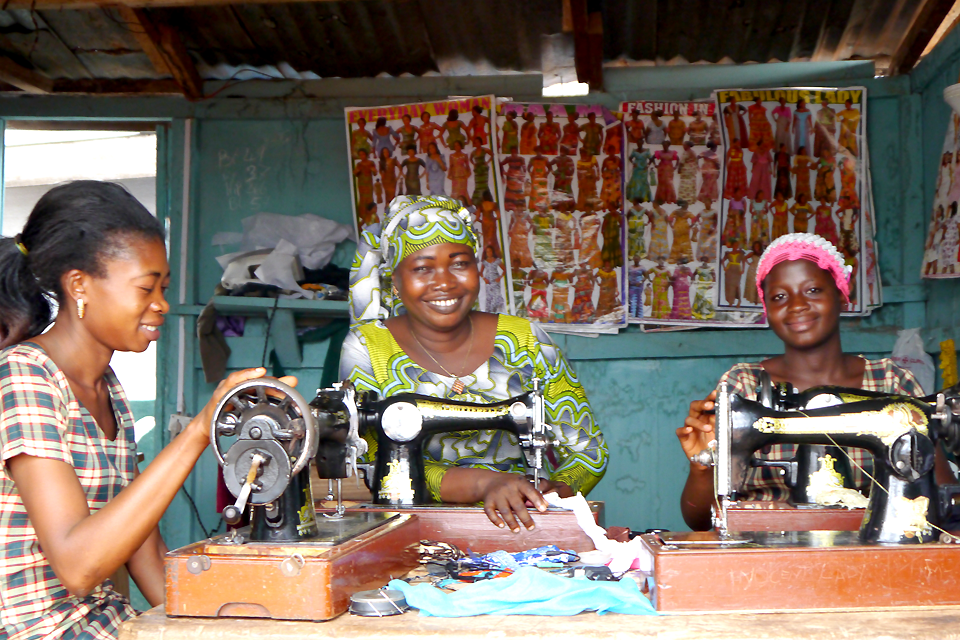
Picture: Jenny Dunn/Opportunity International
Fatima decided to give something back to her community in Kumasi, Ghana. She wanted to learn how to make clothes and begin her own business - but was unable to afford the training.
That was until she got a place on Opportunity International’s Youth Apprenticeship Programme – backed by UK aid – that helped her learn the technical sewing skills and business know-how she needed.
Now, Fatima runs her own business in a small shack supported by a start-up loan from Opportunity International – enabling her to buy sewing machines and materials.
Within 3 months of graduating, she was already giving back to her own community: she’d taken on 2 apprentices in her business. And that was just the start, as the business grows, Fatima has plans to train even more young people and build a house to accommodate them.
Without this programme, young people will not be able to start businesses and would be a drain on society.
The apprenticeships give young people, and our country, the chance for a better future.
Joytara, Bangladesh
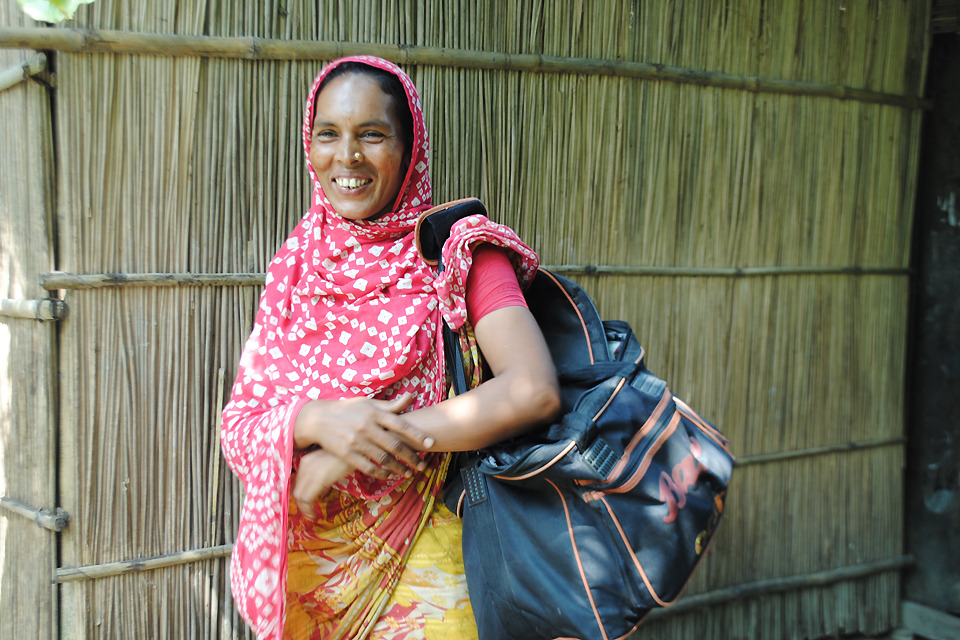
Photograph of a door-to-door salesperson
Joytara is a rarity in Bangladesh: she owns land in her name, thanks to a UK aid funded scheme. But not long before, she faced desperation when her husband was paralysed and her work as a maid was not enough to make ends meet.
After hearing her story, CARE International invited her to become an ‘Aparajita.’ ‘Aparajita’ means ’women who will not accept defeat’. Like Avon ladies, they travel from home to home selling products from private sector partners such as Unilever, Danone, Bata and Grameen. Her wares range from shampoos, soaps and sanitary towels to mobile phone packages and shoes.
People used to shun us, they might give us food but they wouldn’t lend us any money if we needed it. Now I lend money to others who are more needy, and I even advise people in the community.
I can decide how to spend money. I have two daughters, Shuma, aged 8 and Shumi aged 12. I can keep both my daughters in school and my husband has more respect for me. I have become the main decision maker in our household.
Normally it is just men who own land, but recently as a family we bought land and it will be registered in my name. Our house used to be very small, on a small corner of land, it is now much bigger and I am very proud.
Sughra, Pakistan
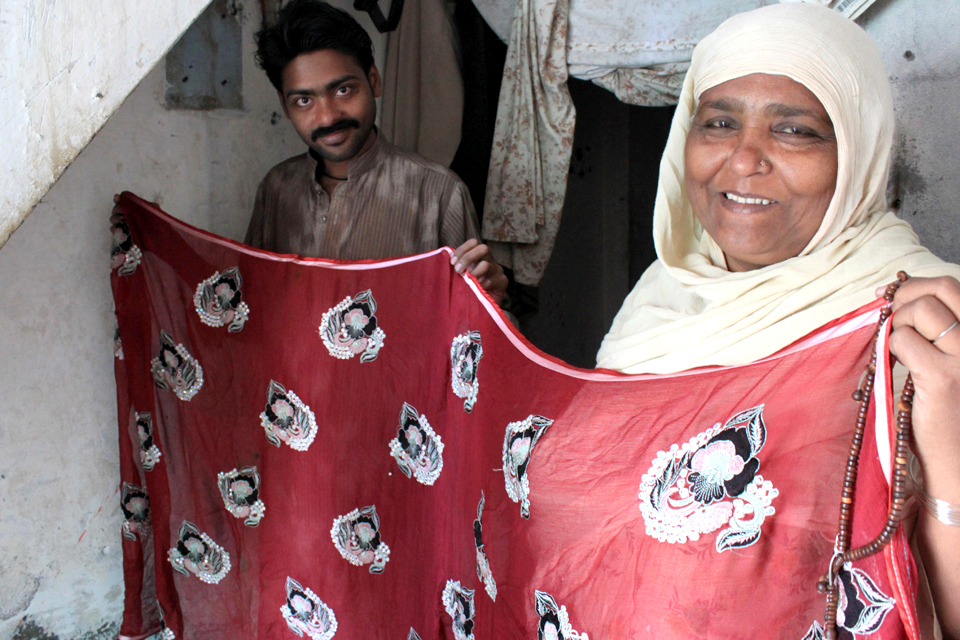
Photograph of a cloth worker
Sughra is from Lahore in Pakistan. She used to work on a piecemeal basis for meagre wages – as low as 40 pence a day.
With the help of UK aid, Sughra got her first ‘microfinance’ loan 10 years ago – using it to set up her own small cloth business. Now she’s earning up to £20 on a good day, as well as providing jobs for more than 25 other local women as her business has grown.
In Pakistan, two-thirds of women do not have bank accounts or access to financial services. Small loans like these have helped thousands of women across the country to start their own small business, increasing family incomes and job opportunities.
On average, my daily takings range from 700 on a very slow day to 2500 rupees on a good day, and that is good profit. I’ve purchased some land in the village.
I now send 2 of my sons to school. My elder son didn’t go to school as we couldn’t afford it before, but he helps me with my business so has a good job. In the future I want to buy the cloth in bulk direct from Karachi, and set up other women with their own businesses who I will supply to.
Rima, Bangladesh
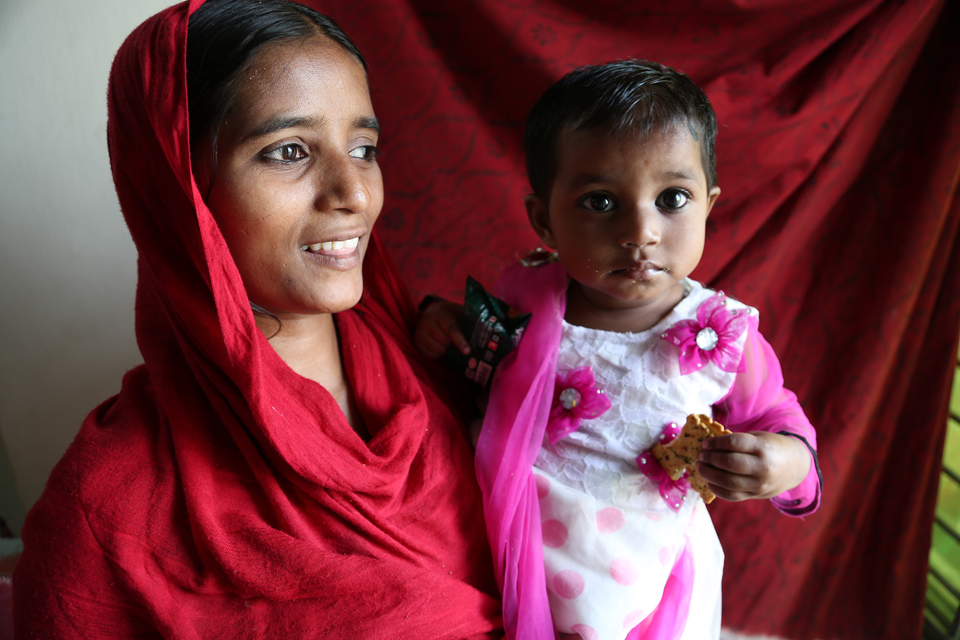
Photograph of a female worker and her child
Rima had a full time job in Dhaka - but when it came to having her baby, her employers wouldn’t give her the maternity leave she was due.
That was until she got in touch with Awaj Foundation – a UK aid partner. They organised an ultrasound and doctor’s report, as well as helping her get together the legal documents needed to apply for her maternity leave.
Not only did she win her own battle, with 16 weeks full pay and benefits, but she also won the right to maternity leave for the rest of her female colleagues at the factory where she works.
It’s not so easy to get rights. First you have to know your rights before claiming them.